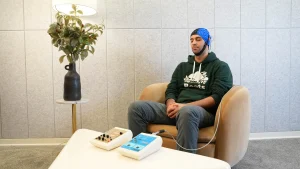Mental health is a fundamental part of human well-being, influencing how we think, feel, relate to others, and navigate life. Yet, despite growing awareness, stigma remains one of the biggest barriers to seeking help and achieving recovery. The silence, shame, and misunderstanding that surround mental health conditions not only delay treatment but often deepen suffering.
In this blog, we’ll explore the different forms of stigma, how they affect individuals and communities, and—most importantly—what we can do to break the cycle and foster a more compassionate, informed society.
What Is Mental Health Stigma?
Stigma refers to negative attitudes or discrimination against someone based on a distinguishing characteristic—in this case, a mental health condition. Mental health stigma can be external (public or societal) or internal (self-stigma), and it manifests in many ways:
Stereotypes: Believing that people with mental illness are dangerous, weak, or incapable.
Discrimination: Treating someone differently in the workplace, school, or healthcare settings because of their mental health.
Shame: Feeling embarrassed or guilty about having a mental health challenge and trying to hide it.
These reactions are often rooted in fear, misinformation, and cultural taboos. And while stigma affects everyone, its impact is particularly harmful for vulnerable groups, including children, seniors, immigrants, and individuals from minority communities.

Common Myths That Fuel Stigma
Let’s challenge some of the most harmful myths and replace them with facts:
❌ Myth: Mental illness is a sign of personal weakness.
✅ Fact: Mental health conditions are medical issues, not character flaws. They can arise from genetics, trauma, brain chemistry, or life stressors—just like physical illnesses.
❌ Myth: People with mental health disorders are violent.
✅ Fact: The vast majority of individuals with mental health conditions are not violent. They are more likely to be victims of violence than perpetrators.
❌ Myth: Therapy and treatment don’t really work.
✅ Fact: With the right support—therapy, medications, lifestyle changes, or integrative treatments like Neurofeedback or Biofeedback—many people manage symptoms and live full, thriving lives.
❌ Myth: Only adults struggle with mental health.
✅ Fact: Mental health issues can begin in childhood or adolescence and affect people across all ages, including seniors.
The Real Impact of Stigma
The consequences of mental health stigma are far-reaching and painful. They can include:
🚫 Delayed Treatment – Many individuals wait years before seeking help, fearing judgment or being labeled as “crazy.” This delay often allows conditions to worsen and become more difficult to treat.
🤐 Isolation – Stigma causes people to hide their struggles, withdrawing from friends, family, and community. The resulting loneliness can deepen depression or anxiety and even increase suicide risk.
💼 Workplace Discrimination – Employees may avoid disclosing mental health concerns due to fear of being passed over for promotions, judged by colleagues, or fired.
🧠 Self-Stigma – Perhaps the most damaging form of stigma occurs within: when people internalize societal shame and begin to believe they are broken, weak, or unworthy. This impacts confidence, self-esteem, and even willingness to recover.

Addressing Stigma: What Can We Do?
Tackling stigma requires action at all levels—from individuals to institutions. Here’s how we can all contribute:
1. Talk Openly About Mental Health
The more we talk about mental health in everyday conversations, the more normalized and less taboo it becomes. Share your experiences if you feel safe to do so. Normalize phrases like:
“I’m seeing a therapist for anxiety.”
“I’ve been struggling with low mood lately.”
“My child is going through ADHD treatment.”
When others hear honest, human stories, it challenges stereotypes and opens minds.
2. Educate Yourself and Others
Misinformation fuels stigma. Learn the facts about mental health conditions and share that knowledge in your family, workplace, and community. Mental health is not just about diagnoses—it’s about stress management, emotional resilience, and brain function.
You can also explore cutting-edge treatments like:
QEEG Brain Map to understand brain function
Neurofeedback to train focus and self-regulation
Biofeedback to manage stress and anxiety
Photobiomodulation (PBM) to support brain health and mood
3. Use Language That Empowers, Not Labels
Words matter. Avoid defining people by their diagnosis (e.g., “He’s schizophrenic”) and instead use person-first language (e.g., “He has schizophrenia”). Replace stigmatizing words like “crazy” or “psycho” with respectful, accurate terms.
4. Support Access to Care
Encourage policies and practices that make mental health care more accessible and affordable. If you’re an employer or leader, create an environment that promotes wellness, offers mental health days, and provides resources.
5. Offer Compassion, Not Judgment
When someone opens up about their mental health, listen with empathy, not solutions. A simple “Thank you for sharing, I’m here for you” can be more powerful than any advice.

How Elumind Is Fighting Stigma
At Elumind Centres for Brain Excellence, we’re proud to be part of the movement breaking mental health stigma. Our team of clinicians and specialists offers a safe, welcoming space where clients of all ages and backgrounds can explore their mental wellness journey without fear of judgment.
We offer a range of non-invasive, evidence-based services tailored to the individual. Our holistic, integrative approach allows clients to explore healing through science-backed, compassionate care.
Conclusion: From Stigma to Support
Ending mental health stigma starts with each of us. Every time we speak openly, offer understanding, or advocate for mental wellness, we chip away at centuries of silence and shame.
Mental health is just as important as physical health and everyone deserves to feel safe and supported in seeking help.
So, let’s talk. Listen to one another. Support each other. Change the conversation around mental health together.
Need support or know someone who does?
Reach out to Elumind for a free 15-minute phone consultation. Let’s take the next step toward healing—without stigma, and with science, care, and hope.








